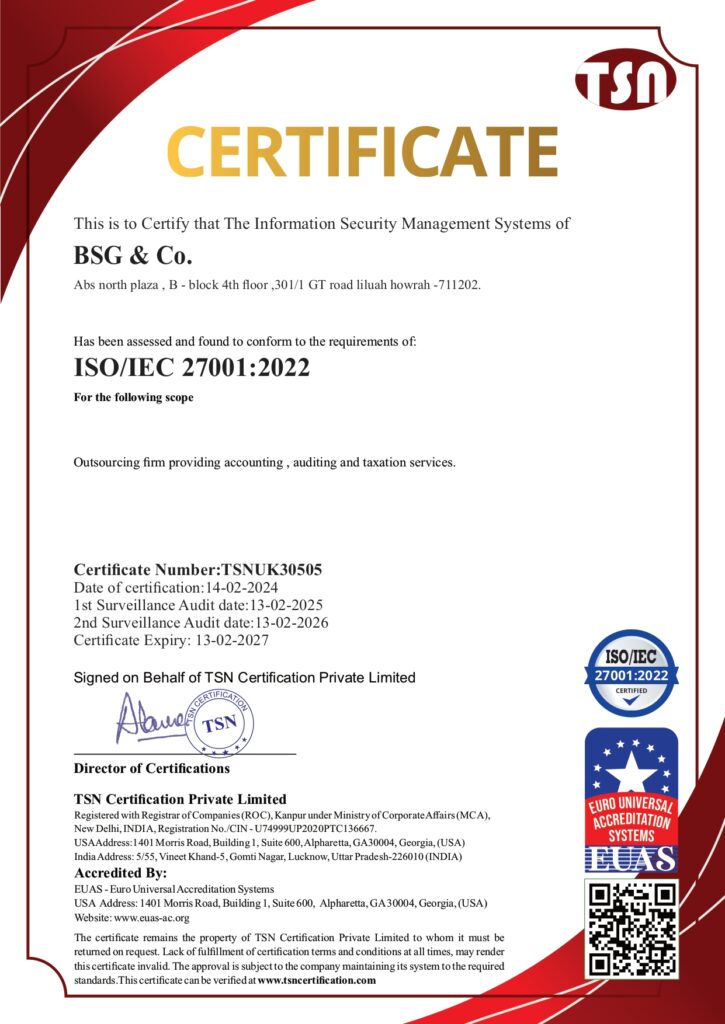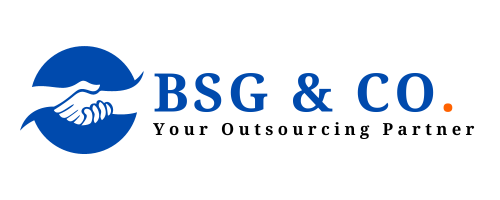Data Security : ISO 9001 & 27001
Data security is a critical concern for organizations in today’s digital age, where sensitive information is constantly at risk of unauthorized access, breaches, and misuse. To address these concerns, BSG & CO. have many key standards to guide organizations in establishing robust management systems for quality and information security: ISO 9001 and ISO 27001. While ISO 9001 focuses on quality management, ISO 27001 is dedicated to information security management. Both standards, however, emphasize the importance of data security in their respective scopes.
ISO 9001 is a standard that sets out the criteria for a quality management system (QMS). It is based on a number of quality management principles, including a strong customer focus, the motivation and implication of top management, a process approach, and continual improvement.
ISO 27001 is the international standard that provides a framework for an information security management system (ISMS). This standard helps organizations manage the security of assets such as financial information, intellectual property, employee details, and information entrusted by third parties. ISO 27001 focuses directly on maintaining the confidentiality, integrity, and availability of information through the implementation of risk management processes.

Data Security in ISO 9001
Although ISO 9001 does not explicitly address data security in the same detail as ISO 27001, it does incorporate aspects of data management and protection. The standard requires organizations to ensure that data and records related to quality management are accurate, protected, and properly maintained. This includes:
Document Control: Ensuring that documents are protected from unauthorized access, alteration, and destruction. This is achieved by implementing controls for document approval, review, and update.
Record Keeping: Maintaining secure records that provide evidence of conformity to requirements and the effective operation of the quality management system. This involves safeguarding data from loss, damage, or unauthorized use.
Data Accuracy: Ensuring that data used to monitor and measure quality is accurate, reliable, and secure. This includes implementing processes for data validation and verification.
Data Security in ISO 27001
ISO 27001, on the other hand, is specifically designed to manage and protect information security. It provides a systematic approach to managing sensitive company information so that it remains secure. This includes people, processes, and IT systems by applying a risk management process. Key aspects of data security in ISO 27001 include:
Risk Assessment: Identifying, analyzing, and evaluating risks to information security. This helps organizations understand where their vulnerabilities lie and implement appropriate controls to mitigate those risks.
Access Control: Ensuring that access to information and information processing facilities is restricted to authorized users. This involves implementing measures such as password protection, encryption, and multi-factor authentication.
Incident Management: Establishing processes for identifying, reporting, and responding to information security incidents. This helps organizations minimize damage and recover from breaches quickly.
